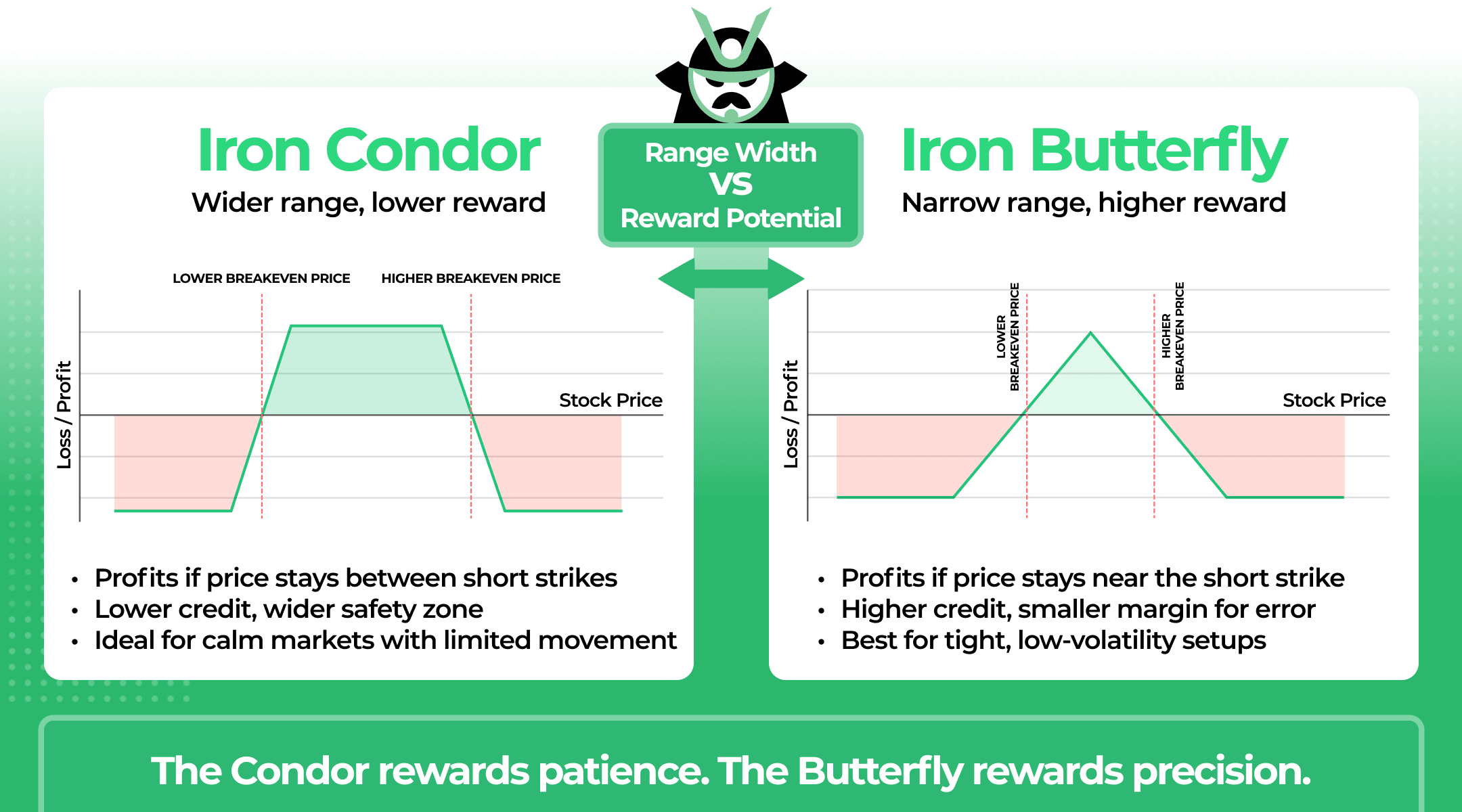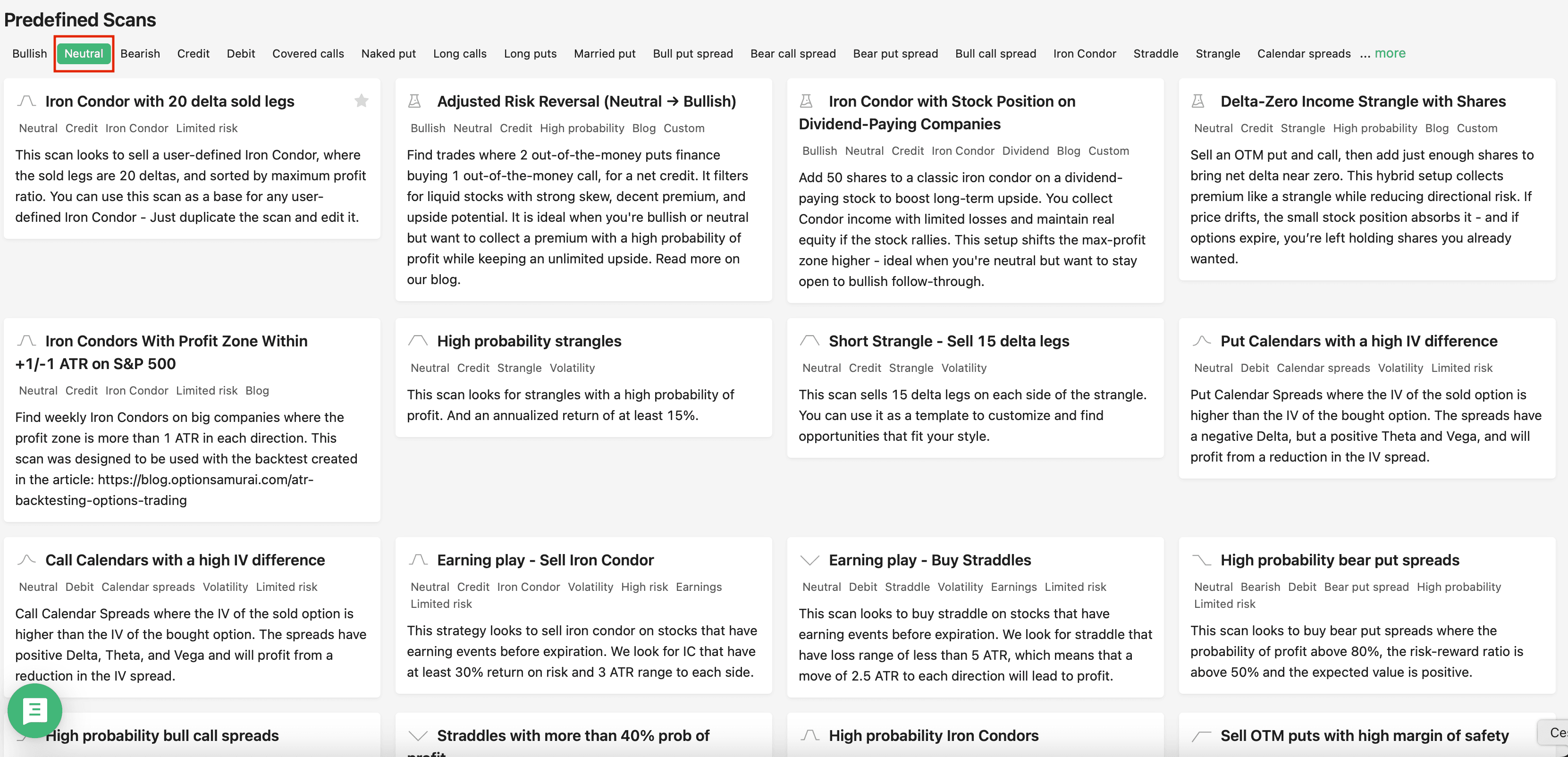Category: Tutorials

Iron Condor vs Iron Butterfly Strategies - Two Different Ways to Trade a Sideways Market
Understand the difference between the iron condor vs iron butterfly strategies. These setups are 2 popular ways to trade a sideways market.

Options Portfolio Management: How to Build and Balance Positions
Master options portfolio management with strategies, risk controls, and practical examples. Learn how to diversify, size positions, and more.

Debit Spread vs Credit Spread - How To Choose The Right Vertical For Your Market View
A clear guide to debit spread vs credit spread strategies, how they work, when to use them, and how volatility and pricing shape your choice between the two.

Risk Reversal in Options - How to Trade Direction With Minimal Upfront Cost
Understand risk reversal options, how they provide low cost directional exposure, and how to trade them in bullish or bearish markets.

No Loss Option Strategies - How True Zero Risk Trades Really Work
Learn how no loss option strategies actually work using put call parity, synthetic pricing, and true zero risk structures like collars, box spreads, and butterflies.

Low Cost Options Trading Explained - Strategies for Small Accounts
Low cost options trading explained with clear strategies for small accounts, from cheap option trades to spreads and the poor man’s covered call.

Options Strategy for a Sideways Market - How to Profit When Prices Don’t Move
Discover the best options strategies for a sideways market. Learn how to profit from low volatility phases.

Covered Calls on Dividend Stocks - Monthly Income from Quality Companies
How do you find the best dividend stocks for covered calls, and when should you sell for a covered call dividend?

High Probability Options Strategies with Low Risk and Strong Edge
Discover high probability options strategies like put selling, iron condors, and ratio spreads. Low risk, high edge trades with defined probabilities.

How to Choose the Right Strike Price for Options? Understand Risk vs Reward in Seconds
Learn how to choose the right strike price for options based on your strategy, risk tolerance, and market outlook.